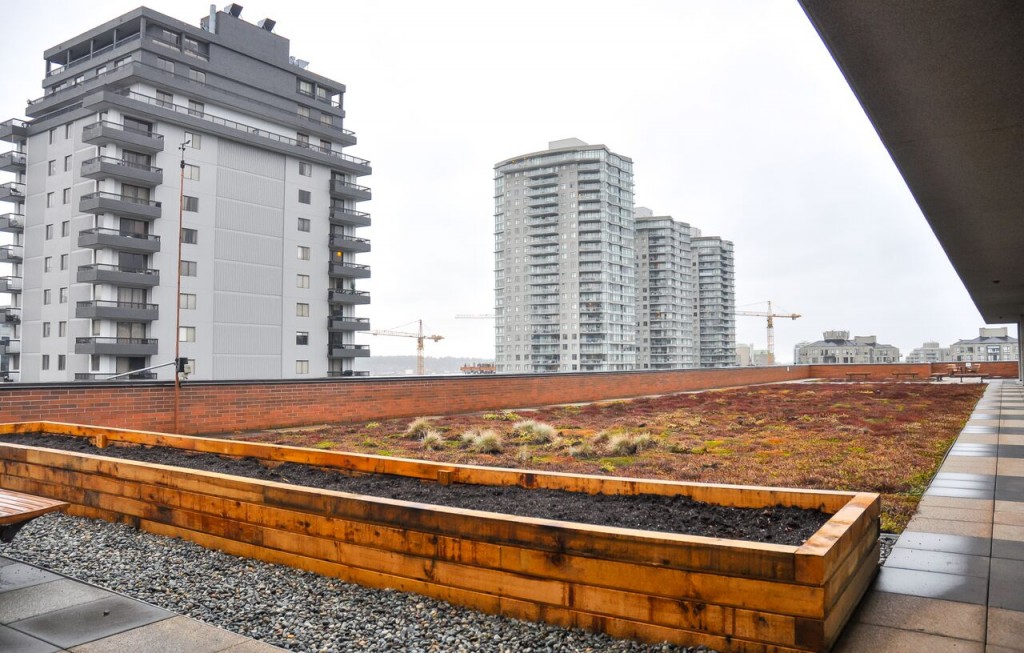
Medicines to be planted in spring
By Colten Kamlade, Staff Reporter
A new garden bed was officially revealed to students and staff at the New Westminster campus on November 30.
Nothing is currently growing in the garden, but in the spring it will be seeded with plants that have special significance to Indigenous cultures.
Amelia McComber, an Indigenous elder, shared her knowledge during a presentation and tour of the new garden.
“My talk today is about the relationship between us, the people, and the medicines. So we have four sacred medicines that were given to us, were gifted to us,” she said.
McComber described the importance of tobacco—which will be planted in the new garden—to indigenous cultures.
“Tobacco is the first [medicine,] and tobacco is the first according to our people because after our creation story […] the creator blessed the whole creation story by allowing tobacco to come first. So, in our culture, and other cultures, tobacco is given first before you ask any spiritual elder or anyone to do any customary spiritual work,” she said.
According to the creation story, sage is the second medicine given by the creator. McComber described its use in traditional medicine.
“If someone has a negative thought towards you, they just have to think it about you and sometimes if you’re weak and if you aren’t centered, sometimes that negative energy will attach to you and will somehow affect you,” she said. “Sage is used primarily to help detach those things.”
The third medicine McComber discussed was cedar.
“The next is cedar, and of course cedar comes from this territory,” she said. “The cedar would travel down to New Mexico, Albuquerque New Mexico. That was the hub trading place where everything was traded. Then it would be distributed and again come up the five trails of North America.”
The fourth medicine that will be included in the Indigenous garden is sweetgrass. McComber described the symbolism surrounding the plant.
“It has an aroma and a fragrance that is very unique, when it burns it smells sweet, and when you hold it, it smells very sweet as well,” she said. “The teaching around sweetgrass is that it is to remind us that life is good; life is sweet and we are to accept that that sweetness is a part of us.”
The garden bed was built by Architek at cost, and the funds were provided by the Ministry of Advanced Education. In the spring there may be opportunities for students and staff to participate in the planting of the garden, so keep an eye on the Douglas College calendar of events.


